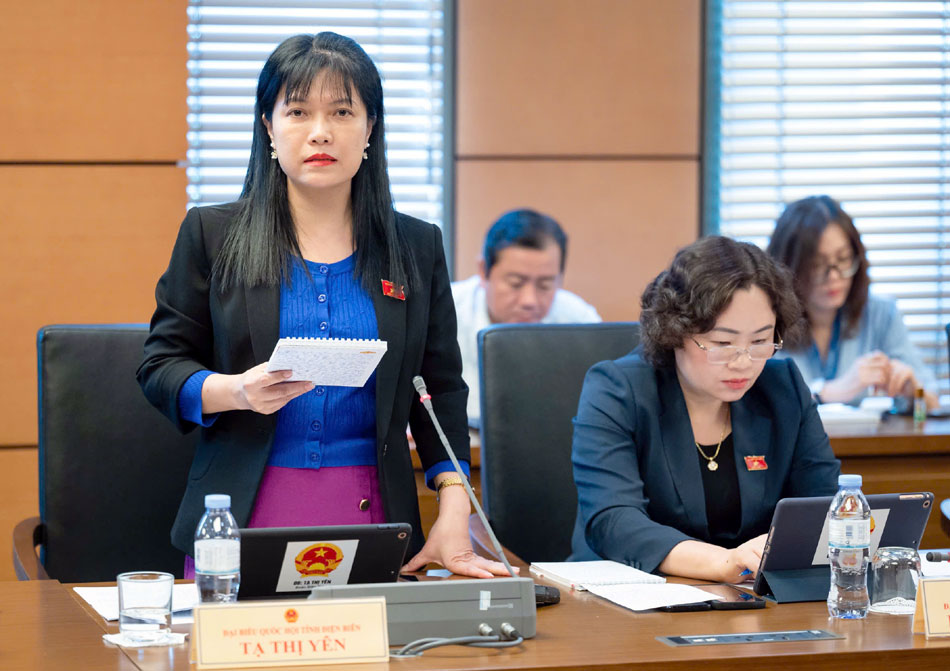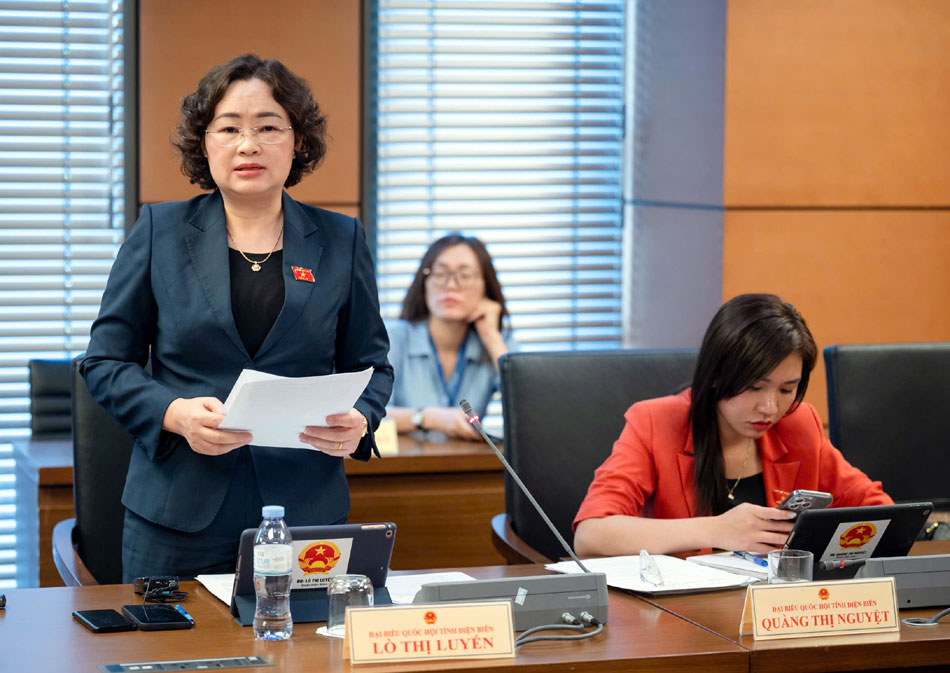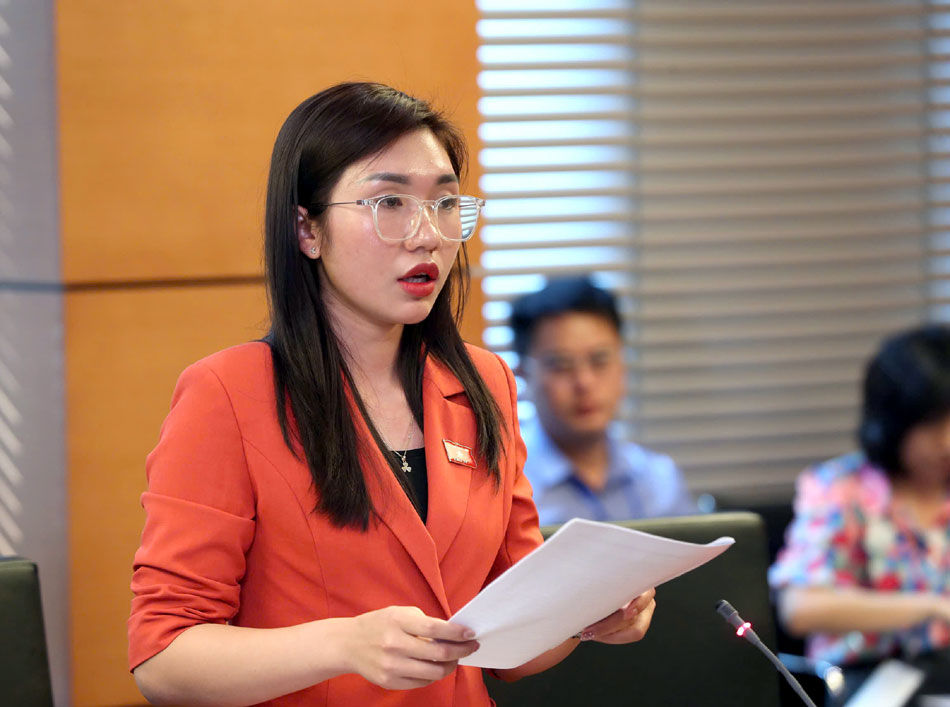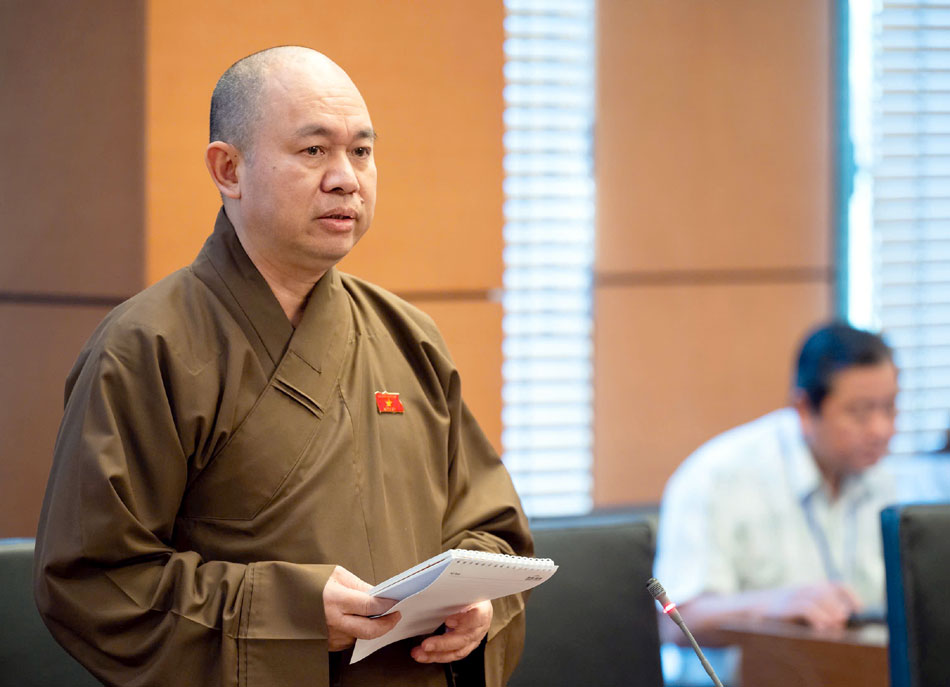
Tạ Thị Yên, Deputy Head of the Deputy Affairs Committee, Điện Biên Provincial National Assembly Delegate, speaks at the discussion session.
In her comments on the draft amendments to the Advertising Law, Deputy Tạ Thị Yên agreed on the need for revisions, noting that advertising is not only one of the twelve cultural industries prioritised by the Party and State for comprehensive development but also an integral part of all areas of social life.
Regarding specific provisions in the draft, she expressed concern that the requirement for non-fixed-location advertisements to include an option to turn off within six seconds from the start might be too short to convey a complete message effectively, potentially reducing the impact of advertisements. Given the many online services offering valuable, free utilities to users, she suggested either allowing the market to determine the time limit or extending it from six seconds to between 10 and 15 seconds to balance the interests of users and advertisers.
The draft law mandates that advertisements be placed according to regulations, avoiding proximity to or placement within illegal content as defined by Vietnamese law. Tạ Thị Yên, Deputy Head of the Delegate Affairs Committee, expressed concern that this rule could pose implementation challenges, given the vast amount of online content. Websites, social media platforms, and applications in violation of Vietnamese law would be required to remove advertisements upon request by the Ministry of Information and Communications or other authorised bodies.
“This approach will offer flexibility in management, align with regulatory objectives, and enhance compliance among regulated parties,” Tạ Thị Yên affirmed.

Deputy Lò Thị Luyến, Deputy Head of the Provincial National Assembly Delegation, speaks at the discussion session.
Deputy Lò Thị Luyến, Deputy Head of the Provincial National Assembly Delegation, expressed that the concept of an advertising messenger in the draft law does not fully cover the range of advertising mediums as defined and does not encompass all forms of product advertising. She suggested defining an advertising messenger as someone who directly promotes products, goods, or services through advertising activities or by using, displaying, attaching, sticking, drawing, or similar methods.
Deputy Quàng Thị Nguyệt proposed that the drafting committee consider allowing each programme under 30 minutes to be interrupted for advertisements twice, with one additional ad break for every 15 minutes added to the programme length; each ad break should not exceed 5 minutes.

National Assembly Deputy Quàng Thị Nguyệt speaks at the discussion session.
In their remarks on the investment policy for the national target programme on drug prevention and control through 2030, the provincial National Assembly deputies agreed on the necessity of implementing this programme. Venerable Thích Đức Thiện, a provincial deputy, proposed including the Vietnam Fatherland Front as a partner alongside the Ministry of Public Security and other relevant ministries in executing this programme. He noted that, according to Article 10 of the Law on Drug Prevention and Control, the Vietnam Fatherland Front and its member organisations are responsible for organising and coordinating with authorised agencies and local authorities at all levels in drug prevention efforts.

Venerable Thích Đức Thiện, provincial National Assembly Deputy, shares his views at the discussion session.
Deputy Lò Thị Luyến proposed adding content on international cooperation in combating drug-related crimes under the objective of supply reduction. She also suggested including a provision in Project 5 to prioritise investment in constructing therapeutic labour and production facilities, noting that these areas currently lack sufficient investment and specific guidelines on space requirements and types of industries.
Deputy Head of the Provincial National Assembly Delegation, Lò Thị Luyến, also expressed a desire for uniform management mechanisms across national target programmes to facilitate implementation. She recommended that both investment and operational funds for the programme be allocated for the entire period. Furthermore, localities receiving 80% or more of their budget from central government support should have their programme funding fully covered by the central budget to meet the programme’s objectives and tasks.




.jpg)
.jpg)

.jpg)
.jpg)

.jpg)



.jpg)
.jpg)
.jpg)
.jpg)
.jpg)

.jpg)
You have 500/500 characters left
Please enter 5 or more characters!!!